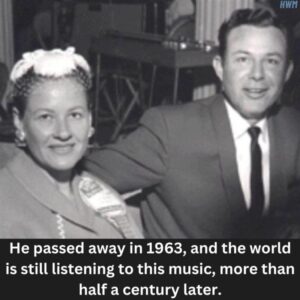My husband comes from a family that calls itself “traditional.” I come from the opposite end of that spectrum. They see me as a “modern woman” like it’s a diagnosis, not a description. They never liked that I work long hours, that I have opinions, that I don’t orbit my life around their son.
Yesterday, I came home from a nine-hour shift, hungry, drained, and already planning to microwave whatever leftovers we had. I walked into the kitchen and found… nothing. No food on the stove, no plates, nothing warm, nothing waiting.
His mother was sitting there, perfectly comfortable, like she lived there.
“You need to do your duty as a wife and cook,” she said, calmly, as if she were reminding me to turn off a light.
I turned to my husband.
“Do you have anything to say?” I asked.
He didn’t hesitate. Didn’t even blink.
“She’s right,” he said. “You should’ve thought of dinner on your way home.”
For a second, I didn’t feel anger. I felt… empty. Like someone had just switched off the lights inside me. We had talked, before marriage, about equality, respect, partnership. We’d had all the deep conversations. I thought he understood who I was, what I stood for.
In that moment, I realized he’d understood — but chosen not to stand with me.
I walked past them, opened the fridge, and stared into the cool white light. It was almost bare. And somehow, the emptiness felt like a reflection of what was happening between us.
His mother watched me, arms crossed, that little satisfied smirk on her face. She looked like someone who had finally won a long game. Like she’d been waiting for this moment, for proof that her way was the “right” way and I was the problem.
I didn’t give her the reaction she wanted. I took an apple from the fridge, closed the door quietly, and went to the bedroom. No yelling. No drama. I just needed space. To breathe. To cry a little where no one could see.
He didn’t follow me.
That night, I slept with my headphones on. Not because he was loud. Just because I needed a barrier — any barrier — between us.
In the morning, I got up early. I moved through the apartment like a guest. I didn’t cook. Didn’t make coffee. I simply got dressed, took my bag, and left.
I went straight to my best friend Nira’s place. She works nights and was still home. When she opened the door and saw my face, she didn’t ask what was wrong. She just pulled me inside.
I told her everything. Every small humiliation. Every time his mother had commented on my clothes, my house, my work hours. Every time my husband had stayed silent.
“You’re not crazy,” Nira said, when I finally stopped. “You’re just exhausted. And disrespected.”
She handed me a cup of tea, and we sat quietly for a while. Then she asked one question that lodged itself in my chest.
“Do you feel loved at home?”
I opened my mouth to answer — and nothing came out.
That evening, I went back to our apartment to face whatever was waiting. His mother was still there, this time stirring something on the stove like she was the mistress of the house. My husband was on the couch, scrolling on his phone, casual, relaxed.
He glanced up and said, “Dinner’s almost ready.”
No apology. No mention of the night before. Just an announcement, like I should be grateful.
I walked straight past them into the bedroom and took out a bag. I started folding clothes. Underwear. A few shirts. A pair of jeans. My hands were steady. My heart wasn’t.
He finally followed.
“What are you doing?” he asked, confusion written all over his face, as if my reaction didn’t match the scene in his head.
“I’m leaving for a while,” I said, closing the zipper. “I need space. You can have dinner with your mom.”
“So one argument and you’re done?” he said.
I turned to him.
“It’s not one argument,” I replied. “It’s a pattern. I am tired of asking for basic respect and being treated like that makes me difficult. I’m not leaving forever. But I need to decide if this marriage is still safe for me.”
He tried to argue, to tell me I was overreacting, but I walked out. His mother called after me — something sharp, no doubt — but I didn’t catch the words. I didn’t want to.
I moved in with Nira for a while.
For two weeks, my life became simple. I went to work. I came back to a quiet place. I cooked when I felt like it and ate cereal when I didn’t. I slept without headphones. I remembered what it felt like to be myself without constantly shrinking to fit someone else’s comfort.
He called. He texted. He sent flowers. I ignored most of it at first. Then one day, he sent a long message.
“I messed up. I see it now. I let my mom dictate too much. I didn’t speak up when I should have. You’ve been carrying more than your share, and I took it for granted. I want to do better. Please let’s talk.”
I didn’t reply right away. I’d heard promises before — just not in such clear words. This time, I needed more than words.
A few days later, I stopped by the apartment to pick up some of my things. He was there. Alone.
The place looked… different. Cleaner. More intentional. There were sticky notes everywhere — on the fridge, on the bathroom mirror, inside the pantry.
I walked closer to read them.
“Thank you for every dinner you cooked when you were exhausted.”
“You are not invisible. You deserve to be seen.”
“I’m learning. Not to impress you, but because I should have started a long time ago.”
My eyes blur when I’m really overwhelmed. They did then. I stood there in the kitchen, reading those little notes, feeling tears slide down my face.
He came out of the bedroom quietly, like he knew this wasn’t a moment to fill with explanations. He looked unsure, but there was no defensiveness left in him.
“I asked my mom not to come over uninvited anymore,” he said. “And if she does, I’ll walk her right back to the door. I’ve started therapy too. I grew up thinking love meant control and hierarchy. You’ve shown me it’s supposed to be partnership. I don’t want to lose that. I don’t want to lose you.”
We sat down and talked. Really talked. No raised voices. No accusations bouncing back and forth. He didn’t justify himself. He didn’t blame his upbringing. He listened.
Something inside me shifted, just slightly.
I didn’t move back in that day. I told him clearly: “I need consistency, not a honeymoon phase. I need to see, over time, that this isn’t temporary guilt.”
He nodded. “You’re right.”
So we started over, but not the way we had before. We met for walks on weekends. Coffee after work. No pressure to “fix it fast.” Just two people trying to figure out who they were now.
He kept going to therapy.
I started therapy as well. I needed to understand why I had stayed quiet for so long. Why I’d accepted being minimized and brushed aside under the name of “tradition.” I needed to heal the part of me that thought love meant tolerance instead of mutual respect.
One day, a package arrived at Nira’s place with my name on it.
Inside was a small, hand-written cookbook.
Each page held a recipe we had cooked together at some point. Some were meals I’d taught him. Others were dishes we’d tried and failed and laughed about. Next to every recipe, he had written little notes.
“I’ll make this for you on a Tuesday when you’re too tired to stand.”
“Let me cook this on your birthday so you don’t lift a finger.”
At the very back, there was a new recipe he’d titled “Respect Stir-Fry.” The instructions looked silly at first glance, but I read every word.
Step 1: Listen. Not to reply, but to understand.
Step 2: Drop the ego. Stir gently.
Step 3: Add daily gratitude. Don’t measure, just pour.
Step 4: Serve with accountability. No substitutions.
I sat at Nira’s kitchen table and cried harder than I had in weeks. Not because the cookbook magically made everything okay, but because, for the first time, I could see he truly understood what had been broken.
Months went by.
We rebuilt slowly. Carefully. On new terms.
He set firm boundaries with his family — not just for my sake, but for his. “Uninvited” became “not welcome.” Criticism became “not tolerated.” When his mother made a comment, he addressed it. Not later, not privately, but in the moment.
At home, he took on more without being asked — cooking, cleaning, errands. Not as a grand gesture, but as a quiet, daily proof that he meant what he’d said.
One evening, his mother called while we were in the kitchen. He put her on speaker. She asked if we were coming over for Sunday lunch, then started to hint about “proper” wives and “family responsibilities.”
He cut her off gently, but firmly.
“We’ll let you know if we’re free,” he said. “And just to be clear — if you come here, remember this is our home. My wife is not your servant. She is my partner.”
I stood beside him, chopping vegetables, listening in silence. It wasn’t perfect. It didn’t erase the past. But it was real progress.
About a year later, we were cooking together again on a random Tuesday. He was stirring something on the stove, and I was setting out plates. The scene looked ordinary from the outside.
He turned to me and said, “Thank you for not giving up on me.”
I smiled. “Thank you for giving me a reason not to.”
A few weeks after that, my phone rang. It was his mother.
She asked, politely, if she could come over. Alone.
I hesitated, then agreed.
She arrived with no grand entrance, no loud commentary. She sat at the kitchen table, hands folded in her lap, and looked… smaller somehow. Quieter.
“I was wrong about you,” she said. “I grew up thinking a wife had to fit into one small box. Obey. Serve. Keep quiet. I tried to push you into that box. But I see my son now. He is happier than I have ever seen him. And that is because of you.”
I didn’t know what to say.
She opened a small box and slid it toward me. Inside was a delicate gold ring, worn smooth by years of use.
“It belonged to my grandmother,” she said. “She believed in strong women. I think she would have liked you.”
For the first time since I’d known her, there was no edge to her tone. No hidden insult. Just sincerity.
I accepted the ring and her apology. Not because I needed her approval, but because forgiving her felt like setting down a weight I’d been carrying for too long.
If there’s a lesson in all of this, it’s this:
Love isn’t proven by how much you can endure. It isn’t measured by how small you can make yourself to keep the peace.
Sometimes love looks like walking away for a while so the other person has to decide whether they’ll grow… or stay the same.
Being a “modern woman” doesn’t mean rejecting care, cooking, or compromise. It means choosing those things freely. It means expecting partnership instead of servitude.
And if you’re in a relationship where you’re constantly having to argue your own worth, pause and ask yourself the same question Nira asked me:
Do you feel loved at home?
Because love may not always feel easy, but it should never feel like a performance.
It should feel like peace.





